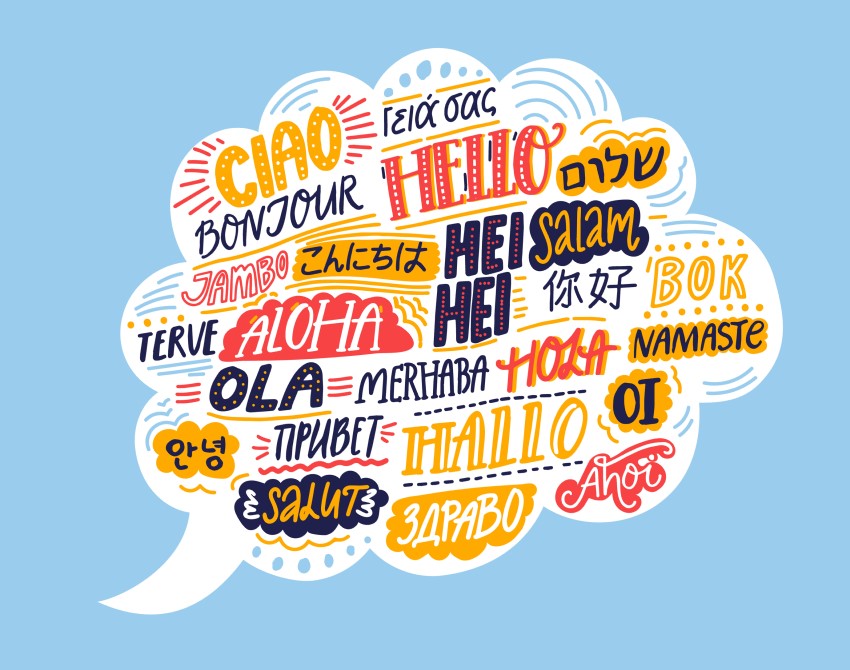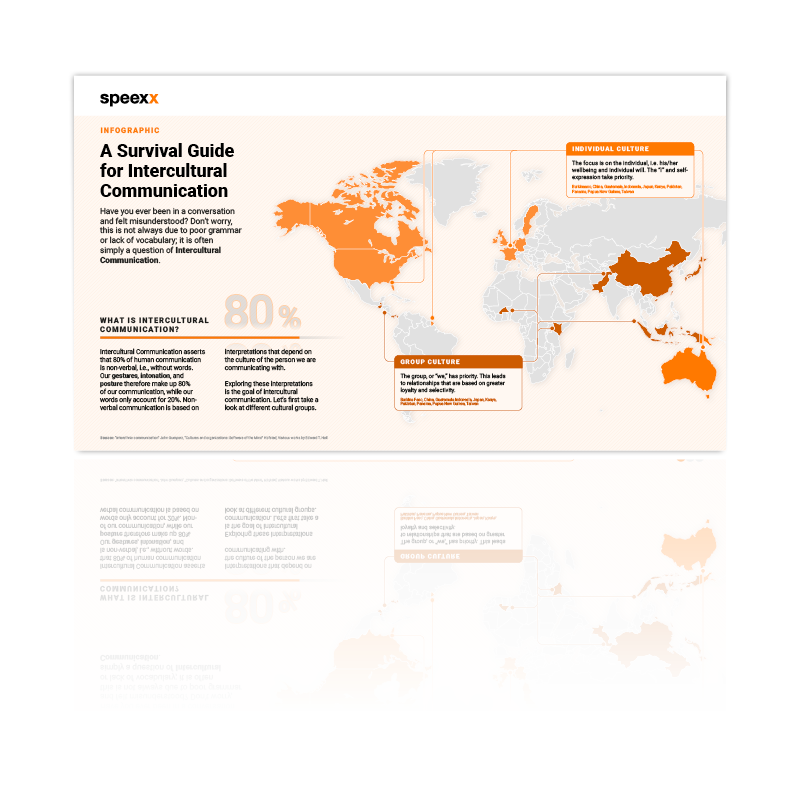In today’s globalized business environment, multilingualism is becoming increasingly vital for companies aiming to succeed in diverse markets. It’s no longer just a competitive advantage—it’s a fundamental requirement for businesses that want to thrive on a global scale.
In this post, we’ll explore the many benefits of multilingualism in the workplace and how it can contribute to business success. Whether you’re a Gen Z employee just starting out or an HR or L&D professional with years of experience, this article is for you.

Multilingualism and Improved Communication in the Workplace
Effective communication is essential for the internal success and smooth operation of any business. In today’s workplace, multilingualism fosters better communication, particularly in international settings, and makes it easier for employees from different backgrounds to collaborate and achieve common goals.

Learn How to Connect Effectively with People from Different Cultures
Multilingualism and Business Growth
Multilingualism is also key to business expansion. In today’s global economy, effective communication is essential—it enables companies to enter new markets, boost competitiveness, and increase sales.
Multilingual employees can help businesses reach a broader audience, both within the company and in the wider community. Specifically, having a multilingual presence on social media can build trust and credibility with an international audience.
Multilingualism, Corporate Culture, Diversity, and Inclusion
Corporate culture plays a critical role in global professional environments. Companies that recognize and respect the cultural differences of their partners and customers can build stronger relationships, avoid cultural misunderstandings, and develop effective strategies for operating in diverse regions. Multilingual employees help bridge these cultural gaps and facilitate communication between individuals from different backgrounds.
A multilingual approach within a company fosters intercultural understanding among employees and reduces the risk of misunderstandings. Why? Because multilingualism is closely tied to cultural competence. Mastering a language goes beyond communication—it involves understanding the culture behind it.
According to a Forbes article, a “98% of employers say they need strong communication skills in those they hire, and 92% say collaboration is extremely important.” Strong cultural skills are crucial for ensuring effective communication that fosters a collaborative environment, no matter where employees come from.
Additionally, multilingual employees can offer language support to colleagues who are not fluent in the workplace’s primary language. This creates a more inclusive environment and helps strengthen the team. As such, multilingual employees are integral to the diversity and success of these teams and their work environments.

Learn more about diversity and inclusion in our white paper.
Multilingualism and Talent Development
Multilingualism is not only crucial for companies but also for the professional development of individual employees. A study published in the Scientific Journal in 2024 found that multilingual individuals possess enhanced executive functions, including greater cognitive flexibility, attention control, and problem-solving abilities. These cognitive skills are vital for fostering talent development in complex and ever-changing professional environments.
Language skills are increasingly seen as a competitive advantage in global companies; they specifically seek employees who can communicate with customers and stakeholders from different regions of the world. Multilingualism is also associated with better career opportunities, higher salaries, and greater job security.
How Multilingualism Promotes Business Success
We have summarized the seven main advantages of multilingualism in companies:
- Better Job Opportunities and Higher Salaries: Multilingualism is associated with better career opportunities, higher salaries, and greater job security. In the global job market, speaking more than one language is an advantage.
- Cultural Competence and Adaptability: Multilingual professionals are more likely to develop cultural competence and adaptability, which are essential in today’s diverse work environment . Multilingualism helps employees appreciate cultural differences and work effectively in intercultural teams.
- A More Diverse Workplace and a Stronger Team: Multilingual employees not only bridge language gaps but also foster a more inclusive workplace culture. By offering linguistic support, they help colleagues from different backgrounds feel more integrated, leading to stronger teamwork and collaboration.
- Better Business Relationships: Multilingualism transcends language barriers, fostering deeper intercultural understanding. This improves relationships with international clients and partners, enabling companies to expand into new markets and increase global sales.
- More Exports and Competitiveness: Companies with multilingual staff are better positioned to export products and services to international markets. The ability to speak the language of the target market enhances trust with potential customers. Moreover, multilingual employees can help companies adapt to local cultures, avoid cultural misunderstandings, and foster closer relationships with both partners and customers.
- Improved Customer Service: A multilingual workforce can help companies provide better service to customers who speak other languages, increasing satisfaction and loyalty.
- Social Media Presence: Multilingualism enables companies to reach a broader audience through social media. A multilingual presence helps build trust and credibility with an international audience, expanding the company’s global reach.
Multilingualism is crucial for business success in today’s global economy—offering benefits such as better job opportunities, higher salaries, stronger business relationships, and a more inclusive workplace.
Ultimately, language skills provide companies with a competitive edge.
How to Promote Multilingualism
As we’ve learned, communication in multiple languages is increasingly vital for companies to expand and thrive in the global marketplace. It’s also a valuable tool for individuals looking to advance their careers.
Learning a new language can be challenging, but with the right approach and tools, it can become an enjoyable and rewarding experience. Here are some key strategies:
· Set Clear Goals: Defining your language learning objectives is crucial. Whether for personal or professional development, setting clear goals helps you stay motivated and focused throughout the process.
· Be Consistent: Consistency is essential for language development. Regular practice, even if it’s just for a few minutes each day, is far more effective than occasional, long study sessions.
· Immerse Yourself: Surround yourself with the language by listening to music, watching movies, reading books, or conversing with native speakers. This immersion helps you grasp the cultural nuances and context of the language.
· Use Digital Learning Tools: Digital language platforms, such as Speexx, offer flexible learning opportunities. These tools provide a range of interactive activities suited to different learning styles and allow you to track your progress.
· Seek Feedback: Receiving feedback from experts or language tutors is invaluable. It helps you pinpoint areas for improvement and advance your skills. Digital language solutions, like Speexx, offer personalized feedback and one-on-one sessions to support your learning journey.
By following these strategies, both companies and individuals can reach their language learning goals and enhance communication in a multilingual global market.

Embracing Multilingualism for Business Success
In today’s economy, multilingualism is more crucial than ever. Companies must invest in language training for their employees or risk falling behind. This investment can be further supported by language exchange programs and the fostering of a multilingual culture within the organization. With the right approach and tools, language learning becomes an enjoyable and rewarding experience, unlocking new opportunities for both personal and professional growth.
Multilingualism has evolved from a competitive advantage to a critical business necessity for success in global markets.
